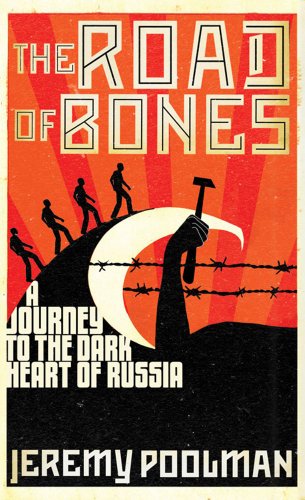WALKING ON THE BONES OF THE DEAD
The name is unfamiliar in the West, although it rolls fairly easily off the tongue, yet the history of Russia’s Vladimirka road cuts through the soul of this nation with the precision of a surgical tool. It was famously painted in 1892 by Isaak Levitan, whose canvas depicts a flat pastoral territory of serenity and muted colours. However, the calm is deceptive. Beneath the dust, rutted tracks, and vegetation patches are the bones of dead people. They are the dead of the recent past and of the previous centuries, the victims of terror, prejudice, and state organised cruelty. Why would anyone want to journey through a path mired in so much brutality? For writer Jeremy Poolman, it was the fulfilment of a mission inspired by a terminally ill friend whose great-great grandfather had been forced to walk that same track.
The Road of Bones, Poolman’s account of his Vladimirka journey, is as much a tribute to a dead friend as it is an analysis of a nation’s character and its dark, beating heart. Men, women, and children were viciously rounded up by the authorities and forced to walk the road into exile or the Gulags. Many died yet remarkably there were survivors, like Leonti Krabka who after his release from a labour camp, rebuilt his parents run down bee farm and turned it into Russia’s seventh largest honey producer. The honey is thick and sweet, with a golden richness that lingers on the author’s memory palette. How ironic that the Gulag should have birthed a money spinner!
There are no monuments commemorating Vladimirka’s victims, or government statements regretting what happened. There is nothing, except a desire to move on from the awkward unanswered questions.
Happy endings like Krabka’s (if you can call it that), are few and far between. How many people died on the Vladimirka road? It’s difficult to say just as one can only imagine the horrific suffering endured by the victims. Time has reduced their voices to distant, fragmented echoes that carry on the edge of the wind. They are the nameless souls whose ghostly presence is the chilling reminder of past injustices.
The Road of Bones is not an easy book to read: it’s suffused with pain, despair and regret although the fleeting moments of humour, including an incident when Poolman is served an omelette by a man who looks, dresses and smiles like Joseph Stalin, alleviates some of the bleakness. Is it wrong to laugh at someone who makes a living impersonating one of history’s most evil men? The answer to that is probably “Yes”, although levity is understandable in light of the grimness Poolman encounters on his travels. Maybe part of the Russian character is the ability to find humour in the darkest corners of sadness. I can’t help thinking that Isaak Levitan was onto something when he wrote: “To know Russia you must first know this road.”
Reviewed by Juliette Foster




